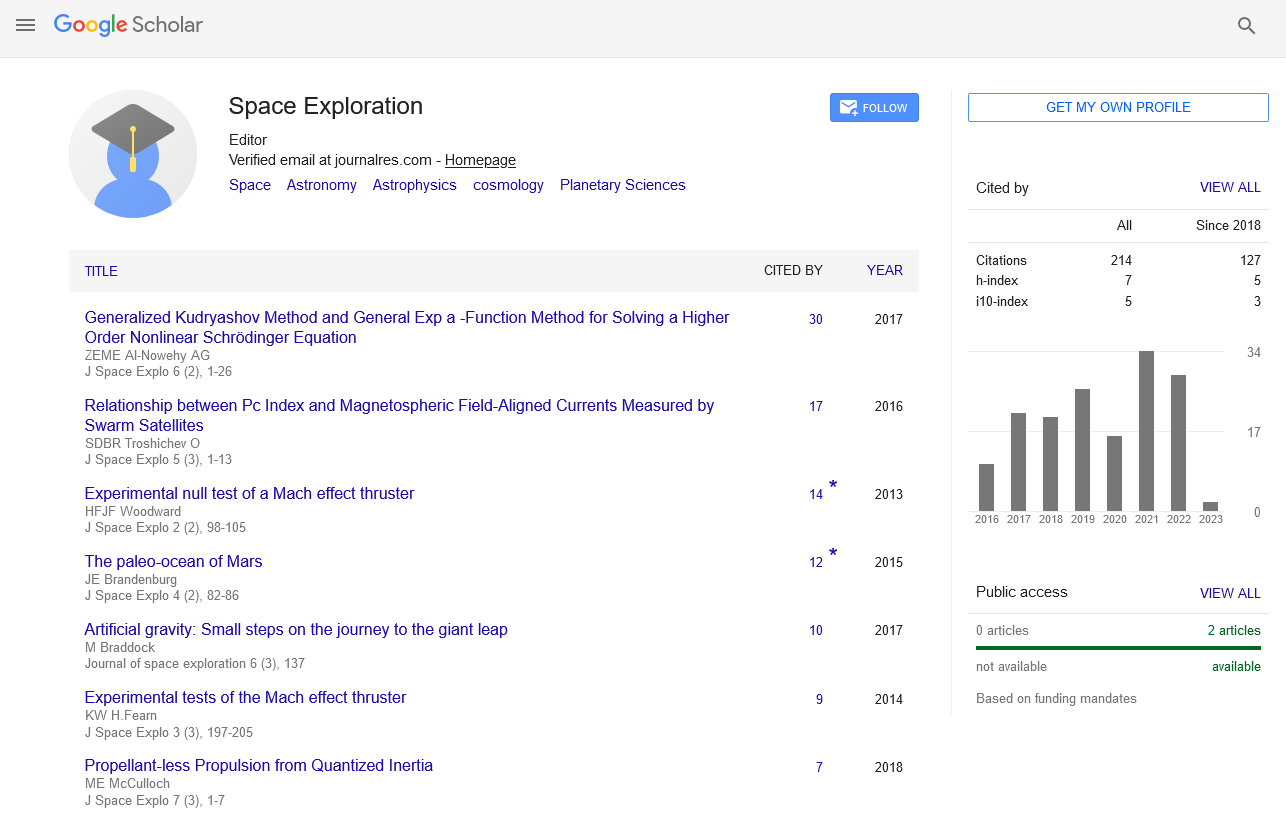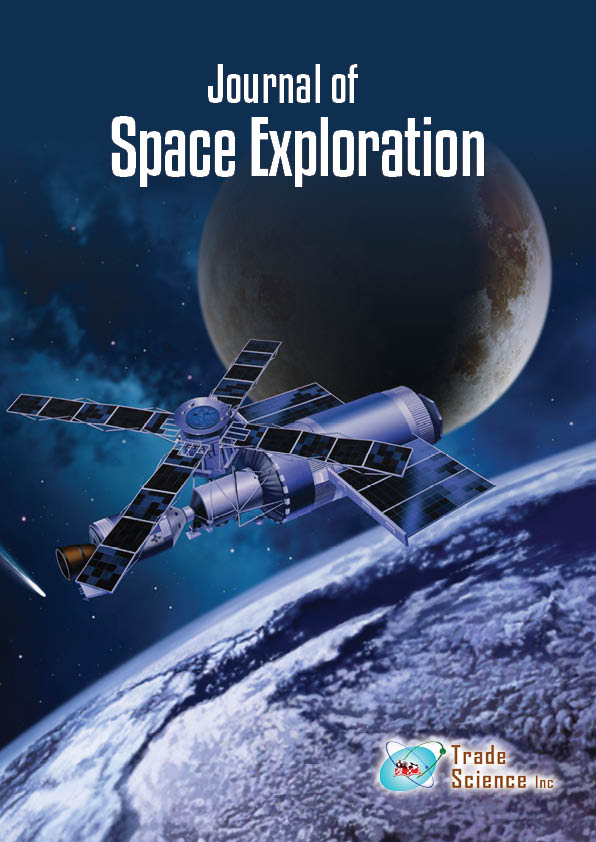Abstract
Space System Identification Algorithms
Author(s): Sands TSystem identification algorithms use data to obtain mathematical models of space systems that fits the data, permitting the model to be used to predict and design controls for system behavior beyond the scope of the data. Thus, accurate modeling and characterization of the system equations are very important features of any space mission, especially since guidance and control involves fuel consumption (currently an unreplenishable asset in space). Simple control algorithms begin by using the governing physics expressed in mathematical models for control, but usually more advanced techniques are required to mitigate noise, mismodeled system parameters, of unknown/un-modeled effects, in addition to disturbances. This research article will evaluate several options for mathematical approaches to space identification. Auto-regressive, moving average models will be compared to finite-impulse response filters including relevant iterations such as inclusion of past inputs, uncorrelated output noise, correlated output noise while recursive least squares techniques are compared with exponential forgetting and also compared to extended least squares implementations with iterations to account for posterior residuals. Mean square error is used to help choose system order and the research reveals preferred approaches to readers. The unique contribution of this research is to aid the reader (by direct comparison) ascertain which technique should be used for disparate cases.

